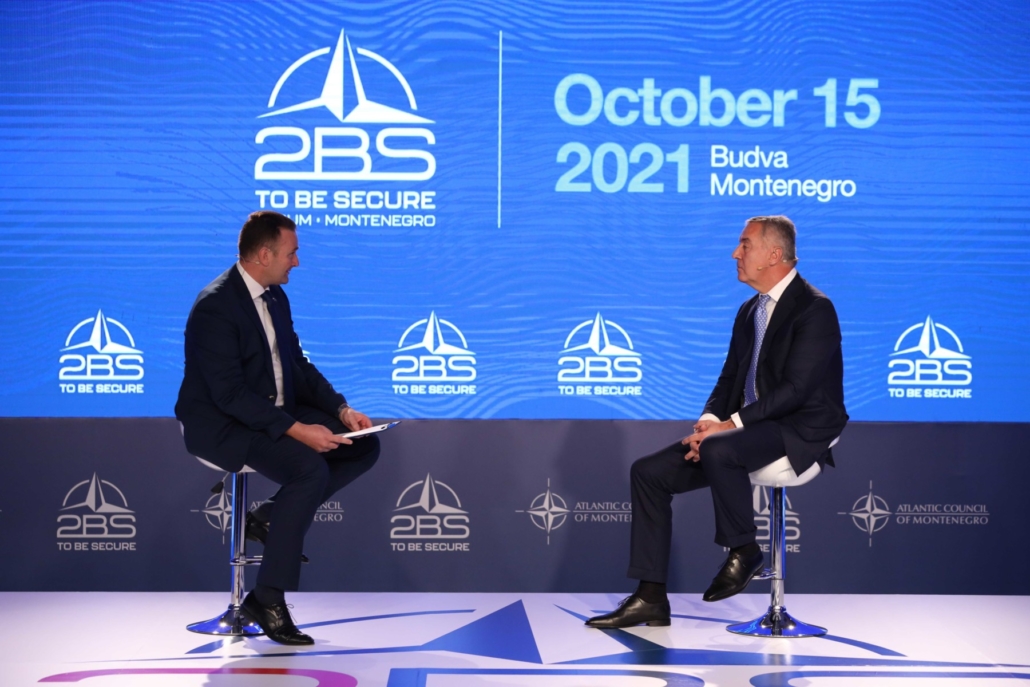President of Montenegro Milo Djukanovic assessed that Russia’s goal was not to jeopardize primarily Montenegro, but the Western values and to undermine the West itself, while Montenegro was just a fertile ground for that.
While participating at the 11th 2BS Forum, he said that the comments about Montenegrin politics having gotten Russia through the front door in the Western Balkans and Montenegro being the sole culprit of its today’s situation were false.
While reminding that only two big Russian investments have been made in Montenegro, with only one being a success, the Montenegrin President said that Montenegro had its state politics, which had not been influenced by Russia.
He believes that the current situation in the Western Balkans has largely been contributed by Brussels’s reluctance to continue with the European integration process and messages that have been blurring the European perspective of the Balkan countries.
Brussels blamed us for not carrying out enough reforms, while we blamed them for slowing down the integration process; therefore, today, we have a situation where stability and not the European perspective is on our agenda. I have always emphasized that there is a big and quality equal sign between stability and the European integration process, he said, adding that we testify that as soon as the European relations are weakened, the third countries interfere with their own plans.
Djukanovic pointed out that the presence of the third countries opened the door to growing nationalism to the point that nowadays we speak about the creation of nationalistic greater state constructs, nationally and religiously homogenous, which should be created at the expenses of North Macedonia, Montenegro, and Bosnia and Herzegovina.
Claiming that he has never asked for the regional counties to become the EU member states before the criteria were met, he said that he asked for the integration processes not to be halted since the Balkan countries cannot ensure stability themselves.
Answering the question about him being responsible for the current position of the Serbian President, Djukanovic said that such claims had come from former Serbian President Boris Tadic who, having lost the elections, tried to pass the responsibility to Montenegro.
What happened there is that the impotent nationalism of Boris Tadic is being replaced with aggressive nationalism of Aleksandar Vucic, and together, they have been resting upon the politics that is based on the need allegedly to protect Serbs in the region and their rights, the Montenegrin President said highlighting that the goal of such politics is to undermine the regional stability.
Referring to the recently held Non-Aligned Summit in Belgrade, Djukanovic ironically commented that the most important thing we found out was that Russia supports Serbia.
While commenting on the internal affairs in Montenegro, Djukanovic said that the current state of affairs was not long-term and that the elections were the only right way to come out of it.
This Government is not functional and, having in mind the coalitional character of its constituents, it cannot be functional, and none reshuffle can ameliorate the situation, the Montenegrin President estimated, noting that smaller partners always realize that they have been swallowed by the larger ones.
He believes that the post-election reality brought important knowledge about the Serbian Orthodox Church being an instrument of the Greater Serbia politics, serving to destabilize the neighboring countries and that the pre-election processions were not a movement against allegedly infringed religious rights.
Djukanovic reminded that the pro-European majority in Montenegro was dominant and that it should consolidate. His Democratic Party of Socialists is rising the rating level and according to him, the decision made at the Congress to open the door for a whole new generation of young politicians proved to be right. He said that he was not afraid of divisions in society and that he believed that he was still able to contribute to the creation of better politics in Montenegro.
